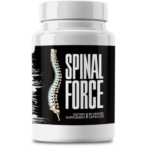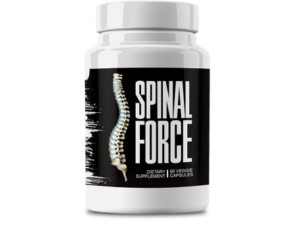This Village-Made Chinese Pain Reliever Eliminates Back And Joint Pain!
What Causes Hip Inflammation? Discover the Hidden Triggers

Getting to Know Hip Inflammation: A Quick Guide
Hip inflammation might sound like just another medical term, but it's something that affects millions of people across the globe, often flying under the radar. While joint pain might be on your radar, pinpointing exactly why your hips hurt can be tricky. In this post, we're diving into the nitty-gritty of what causes hip inflammation and how you can tackle it head-on.
So, What Exactly Is Hip Inflammation?
When we talk about hip inflammation, or "hip synovitis" in medical speak, we're looking at a situation where the tissues around your hip joint swell up and get irritated. This can mean pain, stiffness, and even trouble moving around—definitely a bummer for anyone's day-to-day life. Getting to grips with why this happens is your first step toward handling it better.
Spotting the Signs of Hip Inflammation
Knowing the symptoms of hip inflammation is like having a road map to early treatment. Here’s what to watch out for:
- A nagging pain or tenderness in your hip
- Swelling around the joint area
- Feeling stiff, especially after you've been sitting or lying down
- Not being able to move as freely as before
- Sometimes, a warm sensation around the hip
These pesky symptoms can turn simple activities into a real challenge, highlighting why it's crucial to stay informed and act fast.
How Does Hip Inflammation Mess with Your Daily Life?
Dealing with hip inflammation can seriously slow you down. Even basic things like walking, climbing stairs, or sitting for a while can turn into painful chores. This pain can put a damper on your activity levels, which might make the problem even worse. That's why it's so important to understand and manage hip inflammation to keep living life to the fullest.
What Causes Hip Inflammation?
There are many culprits behind hip inflammation, and identifying them is key to finding the right treatment.
Arthritis: The Usual Suspect
Arthritis, especially osteoarthritis and rheumatoid arthritis, often leads the charge when it comes to hip inflammation. With osteoarthritis, the cartilage wears down, causing bones to rub, while rheumatoid arthritis triggers inflammation in the joint's lining thanks to an overactive immune system. Both bring a hefty dose of discomfort and potential joint damage.
Bursitis and Its Effect on Your Hips
Bursitis happens when the bursae—those tiny, fluid-filled sacs cushioning your hip joint—get inflamed. Repetitive movements or too much pressure can set this off, leading to pain and swelling. It's a common plight for athletes and those with physically demanding jobs.
Injuries: The Unexpected Agitators
Accidents like fractures or dislocations can spark sudden hip inflammation. Even minor injuries can escalate into chronic issues if left unchecked. Proper healing and rehab are crucial to avoiding long-term damage.
Lifestyle Choices That Influence Hip Inflammation
Beyond medical conditions, the way we live can play a big role in hip health. Recognizing these lifestyle factors can help you stay ahead of the game.
The Sneaky Impact of a Sedentary Lifestyle
Sitting too much is a stealthy contributor to hip inflammation. Long periods of inactivity can weaken muscles and stiffen joints, upping your inflammation risk. Keeping active is key to maintaining healthy joints and flexibility.
Obesity: Adding Extra Pressure
Carrying extra weight puts more stress on your hip joints, leading to faster wear and tear. Being overweight is a major risk factor for both osteoarthritis and hip inflammation, making weight management an important part of prevention.
How Bad Posture Contributes to Hip Issues
Slouching or standing poorly can misalign your hip joint, causing uneven wear on the cartilage and subsequent inflammation. Tweaking your posture and making ergonomic adjustments can help keep these problems at bay.
Medical Conditions That Can Cause Hip Inflammation
Some medical conditions can ramp up hip inflammation, calling for a comprehensive treatment approach.
Autoimmune Disorders and Their Impact
Conditions like lupus and ankylosing spondylitis can cause widespread inflammation, including in the hips. They need specialized care and long-term management to control inflammation and protect joint function.
Infections: A Serious Concern
Bacterial or viral infections can lead to hip inflammation. For instance, septic arthritis is a serious condition that requires prompt medical attention to avoid lasting damage.
Metabolic Disorders and Hip Health
Metabolic issues like gout occur when uric acid crystals build up in the joint, causing painful inflammation. Managing these disorders through diet and medication is vital for reducing hip inflammation risks.
Surprising Triggers of Hip Inflammation
Apart from the usual suspects, some lesser-known factors can also play a part in hip inflammation.
Stress: The Unexpected Culprit
Chronic stress can lead to muscle tension and trigger inflammatory responses, even in the hips. Stress-busting activities like yoga and meditation can help ease this tension and reduce inflammation.
How Nutritional Deficiencies Play a Role
Missing out on key nutrients, especially those with anti-inflammatory properties like omega-3s and vitamin D, can heighten your risk of joint inflammation. A balanced diet rich in these nutrients supports overall joint health.
Environmental Influences on Hip Health
Exposure to pollutants and toxins can spark inflammatory responses. Reducing exposure and leading a cleaner lifestyle can help mitigate these effects.
Diagnosing and Treating Hip Inflammation
Getting an accurate diagnosis and the right treatment is crucial in managing hip inflammation effectively.
How Do Doctors Pinpoint Hip Inflammation?
Diagnosing hip inflammation usually involves a physical exam, reviewing your medical history, and imaging tests like X-rays or MRIs. Sometimes, blood tests are needed to rule out infections or autoimmune issues.
Non-Surgical Ways to Manage Hip Inflammation
Treatment often starts with non-surgical options like physical therapy, anti-inflammatory meds, and lifestyle tweaks. These aim to ease pain and boost joint function without going under the knife.
When Is Surgery on the Table?
In severe cases where other treatments don't cut it, surgery might be considered. Options like arthroscopy or hip replacement depend on how damaged the joint is. These procedures can greatly improve life quality but should be discussed thoroughly with a specialist.
Staying Ahead: Preventing Hip Inflammation
Prevention is the best medicine. Here are some tips to keep your hips healthy and inflammation-free.
Exercise: The Hip's Best Friend
Regular workouts, including strength training and flexibility exercises like yoga or Pilates, can keep your joints stable and fend off inflammation. Focus on exercises that strengthen your hip muscles for added support.
Eating Your Way to Better Hip Health
Eating anti-inflammatory foods like fruits, veggies, and whole grains can lower your inflammation risk. Omega-3-rich foods like fish, nuts, and seeds are particularly good for you.
Ergonomics: Keeping Your Hips Happy
Good ergonomics at work and home can prevent unnecessary stress on your hips. Consider supportive seating, standing desks, and regular posture checks to stay aligned and reduce strain.
Wrapping It Up
What to Remember
Hip inflammation can spring from a mix of medical and lifestyle factors. Knowing these triggers can empower you to make smart choices and proactive steps to safeguard your hip health.
Parting Thoughts
While hip inflammation can put a damper on your daily routine, being informed and taking action can lead to effective management and prevention. Adopting a well-rounded approach that includes lifestyle changes and medical advice can keep your hips in top shape. If this guide was helpful, don't hesitate to share it or drop a comment about your own experiences with hip inflammation. What are your thoughts? Share in the comments below.








